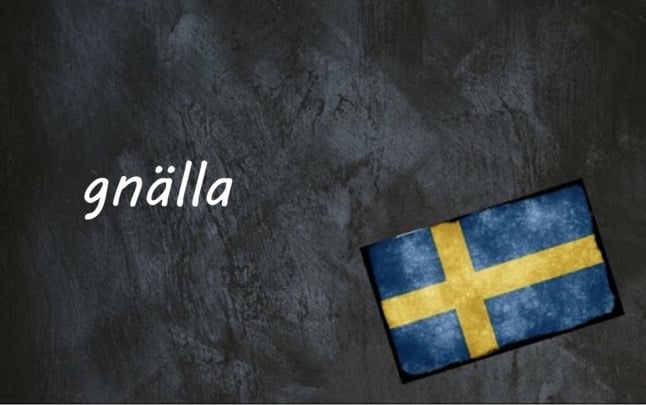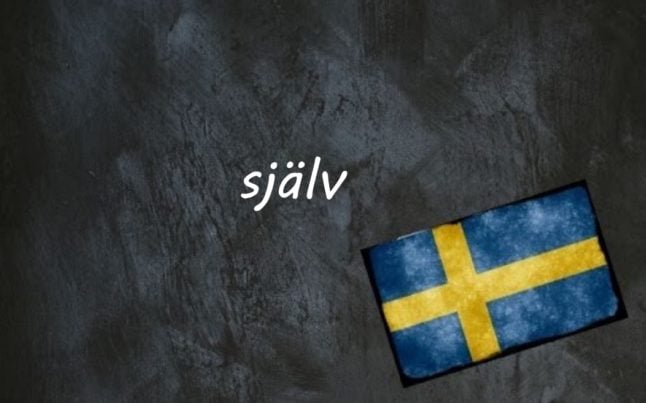Someone who whines a lot could be referred to as a gnällspik (“whine nail”), a gnällpipa (“whine pipe”) a gnällmåns (“whine Måns”), or even a gnällisa (“whine Lisa”), with Måns and Lisa being common male and female Swedish names, respectively.
You may also hear dogs and children accused of att gnälla, especially young children and dogs whining because they want something.
Gnällbältet (“whine belt”) is an informal term often used to refer to the area of Sweden regarded to have a “whiny” or gnällig dialect, due to their use of the “schwa” sound, a vowel sound produced when the mouth is completely relaxed. This sound is pronounced like “uh”, and is found in the “a” in ‘about’ and the “e” in “dinner”.
The dialect of people in the gnällbälte uses this “schwa” after certain vowels, leading speakers of this dialect to sound like they are complaining or whining.
The gnällbält is situated in the middle of Sweden, near the cities of Eskilstuna and Örebro, west of Stockholm. According to Fredrik Lindström, presenter for language documentary Svenska dialektmysterier, the gnällbälte stretches from Laxå in Örebro county, to Kjula in Eskilstuna county. Lindström, coincidentally, comes from Eskilstuna.
People from Eskilstuna usually claim that those from Örebro are more whiny, whereas those from Örebro usually say the same about people from Eskilstuna.
In Svenska dialektmysterier, Lindström presents his theory for why people in the gnällbält sound so whiny.
According to his theory, the gnällig dialect can be traced back to a period where two rival tribes, the svear (Swedes) and the götar (Goths) lived in Sweden, with the svear inhabiting the east and the götar the west. Lindström believes that the svear had a more prestigious dialect as they held a position of power, and that the götar living in the gnällbälte adapted their dialect to sound like the svear, resulting in the whiny vowel sound.
Now, both of the original dialects of the svear and the götar have changed and disappeared, with the gnällig dialect from the gnällbälte a leftover linguistic quirk from Sweden’s history.
The svear, coincidentally, gave their name to both the country of Sweden, and the region of Sweden known as Svealand, situated in the centre of the country. The götar, on the other hand, gave their name to Götaland – the southern region of Sweden – and the city of Gothenburg.
Example sentences:
Men snälla, mamma, kan jag få lite godis? Nej, sluta gnälla!
Please mum, can I have some sweets? No, stop whining!
Dialekten från gnällbältet är nog Sveriges mest irriterande dialekt.
The dialect from the “whine belt” must be Sweden’s most irritating dialect.
Villa, Volvo, Vovve: The Local’s Word Guide to Swedish Life, written by The Local’s journalists, is available to order. Head to lysforlag.com/vvv to read more about it – or join The Local as a member and get your copy for free.
It is also possible to buy your copy from Amazon US, Amazon UK, Bokus or Adlibris.




 Please whitelist us to continue reading.
Please whitelist us to continue reading.
Member comments